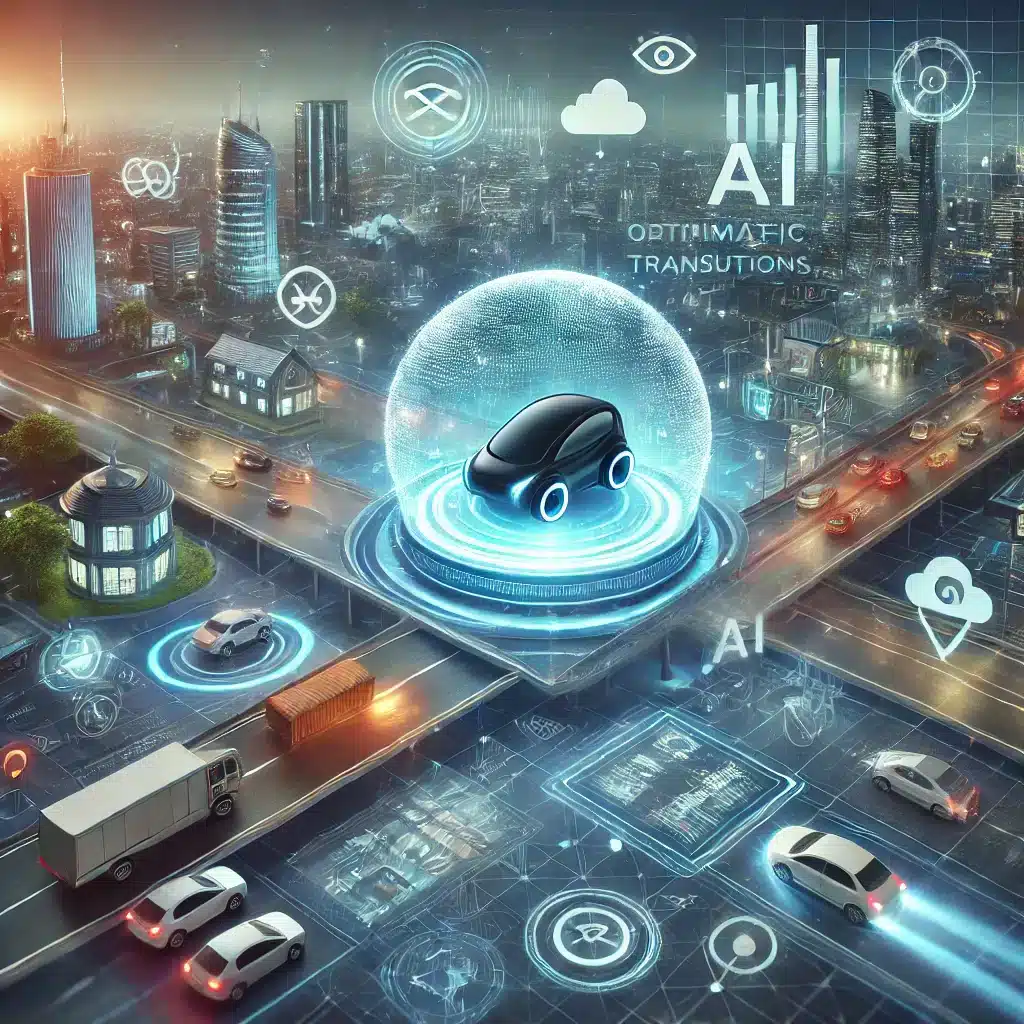In today’s data-driven world, businesses are generating vast amounts of customer data. However, one of the major challenges is turning that data into actionable insights that can improve customer support and drive business growth. AI-driven analytics offer a transformative solution, enabling businesses to not only process large volumes of data but also extract meaningful patterns and trends. These insights can be used to enhance customer experience, personalize interactions, anticipate customer needs, and optimize service delivery.
In this article, we will explore the role of AI in analyzing customer data, how businesses can apply these insights to improve customer support, and the ethical considerations businesses should be aware of when using AI for customer service.
The Role of AI in Data Analysis
AI is exceptionally good at processing large datasets quickly and accurately. Where humans might see just numbers or vague trends, AI can uncover patterns in customer behavior, interactions, and preferences that can lead to actionable insights. AI systems use advanced algorithms and machine learning (ML) models to continually learn and adapt from new data, improving the accuracy of their predictions over time.
For example, predictive analytics powered by AI can forecast customer behavior based on historical interactions. AI can predict which customers are most likely to churn, when they might need assistance, or which product features are underperforming. This information is invaluable for businesses looking to stay agile and responsive in meeting customer needs.
One of the most powerful aspects of AI is its ability to provide real-time insights. Businesses can use AI to monitor customer interactions across different touchpoints such as phone calls, emails, social media, and live chats. AI tools can then offer immediate recommendations on how to address customer concerns, allocate resources, or optimize service delivery.

From Insights to Action: Enhancing Customer Support
While AI is effective at generating insights from customer data, the true value lies in turning these insights into actionable strategies. For instance, AI systems can identify common customer pain points by analyzing feedback from support channels, social media, and customer reviews. By detecting emerging issues before they escalate, businesses can proactively address them, improving overall customer satisfaction.
Let’s look at a practical example: Imagine a customer repeatedly reports issues with a specific feature of a product. AI can identify this recurring complaint from multiple customers and automatically flag it for immediate action. By resolving the issue or offering proactive solutions to affected customers, the business not only prevents future complaints but also strengthens customer loyalty by showing that they value customer feedback and are committed to addressing concerns.
Personalizing Customer Interactions
One of the most exciting uses of AI is its ability to personalize customer interactions. By analyzing individual customer data, AI can suggest solutions, recommend products, and even tailor communication to meet specific preferences. This personalization fosters a sense of customer value, improving engagement and satisfaction.
For example, AI systems in e-commerce platforms can analyze a customer’s browsing history, past purchases, and feedback to suggest products that align with their interests. In customer support, AI can identify which solutions or products the customer has previously interacted with and suggest more relevant options or troubleshooting steps based on past behavior.
Additionally, AI chatbots can handle customer inquiries with highly personalized responses, addressing customers by name and providing recommendations based on their unique preferences. This not only speeds up support but also makes the customer feel understood and valued.
Optimizing Support Operations
Beyond customer interactions, AI can optimize overall support operations. By analyzing past interactions and predicting future trends, AI can help businesses allocate resources more effectively. For instance, AI can forecast peak customer service times, allowing businesses to adjust staffing levels accordingly. This ensures that customers receive timely support during high-demand periods, reducing wait times and improving satisfaction.
AI can also help streamline internal workflows by identifying inefficiencies in the support process. For instance, AI might identify that customer agents spend too much time on repetitive tasks such as data entry or ticket routing. With this knowledge, businesses can automate these tasks, freeing up agents to focus on more complex issues. As a result, service teams become more efficient, response times decrease, and overall service quality improves.
For example, companies like Zendesk and Freshdesk leverage AI to provide real-time recommendations on how to handle tickets and route them to the appropriate department based on the severity of the issue and historical data.
Challenges and Ethical Considerations
While the benefits of AI in customer service are clear, businesses must also be mindful of the challenges and ethical considerations involved in using AI. Ensuring data privacy and protecting customer information are paramount concerns. Businesses must comply with regulations like GDPR and CCPA to safeguard customer data. Transparency in data usage is essential to building trust with customers.
AI also introduces the risk of bias in decision-making. If AI models are trained on biased or incomplete data, they may reinforce existing inequalities or fail to provide accurate insights. Businesses must use diverse, representative data to train AI systems and regularly audit them for bias.
Another ethical consideration is the balance between automation and human interaction. While AI can handle many routine tasks, human agents are still needed to address complex issues or provide empathetic support. Over-reliance on AI can alienate customers, so businesses should take a hybrid approach, using AI to support agents without completely replacing them.
Future of AI in Customer Support
How Will AI Shape the Future of Customer Service?
The future of AI in customer service looks incredibly promising. As AI systems become more sophisticated, they will be able to handle even more complex customer interactions. AI-powered assistants and chatbots will evolve to understand deeper customer sentiments and provide more nuanced solutions. This will make customer support feel even more personalized and human-like, while still benefiting from the efficiency and scalability of AI.
AI will also continue to integrate with emerging technologies, such as augmented reality (AR) and voice recognition. For example, AI-driven AR could allow customers to troubleshoot issues using their mobile devices, with step-by-step guidance and real-time support.
What Innovations Are Expected in AI for Customer Support?
Some of the most exciting innovations in AI for customer support include:
- Enhanced Predictive Analytics: As AI continues to evolve, predictive analytics will become even more accurate, helping businesses anticipate customer needs with greater precision.
- Emotion Recognition: AI will be able to better understand customer emotions, allowing agents to tailor their responses more effectively and empathetically.
- Self-Learning AI: AI systems will become more autonomous, learning from every interaction and improving their performance over time.
These innovations will make AI-driven customer service even more effective, improving customer satisfaction and loyalty.
How Will Future AI Tools Improve Service Team Efficiency?
AI will significantly enhance service team efficiency by automating repetitive tasks and providing real-time insights. Virtual assistants powered by AI will handle routine queries, while AI tools will analyze past interactions to help agents solve complex problems faster. AI will also help businesses identify areas of improvement in their support workflows, ensuring that resources are allocated effectively, reducing bottlenecks, and enhancing the overall customer experience.
Challenges in Using AI for Customer Service
What Are the Common Issues in Implementing AI Solutions?
Some of the most common challenges in implementing AI for customer service include:
- System Integration: Integrating AI tools with existing customer service platforms can be difficult and time-consuming.
- Data Quality: AI models rely on high-quality data, and any inaccuracies in the data can lead to poor performance.
- Over-Reliance on AI: Businesses must ensure a balance between automation and human agents to maintain personalized customer service.
How Can Service Teams Overcome AI Integration Challenges?
Service teams can overcome these challenges by:
- Thoroughly assessing compatibility between AI solutions and existing systems before integration.
- Curating quality data for AI training to ensure that it provides accurate insights and predictions.
- Adopting a hybrid model, where AI supports human agents rather than completely replacing them, ensures customers still receive personalized assistance.
Ensuring Customer Data Privacy with AI
As AI processes vast amounts of customer data, businesses must take steps to ensure data privacy. Adhering to regulations like GDPR and CCPA is essential, and businesses should implement robust security measures, such as encryption and access controls, to protect sensitive information. Transparency with customers about how their data will be used also helps build trust and ensures that customer data remains secure.
Conclusion
AI-driven insights are revolutionizing customer support by turning vast amounts of customer data into actionable strategies. Businesses that effectively leverage these insights can enhance customer satisfaction, provide more personalized support, and optimize their operations for better efficiency. While challenges and ethical considerations remain, the future of AI in customer service holds exciting potential for delivering exceptional, personalized experiences. By continuing to innovate and adapt, AI will play an increasingly integral role in fostering long-term customer loyalty and success.
Frequently Asked Questions (FAQs)
1. How do AI-driven insights enhance customer support?
AI-driven insights help businesses turn data into actionable strategies, enabling them to predict customer needs, personalize interactions, and optimize service delivery.
2. What role does AI play in personalizing customer service?
AI personalizes customer service by analyzing individual data, recommending products, and providing tailored solutions that meet specific customer needs.
3. How does AI improve support team efficiency?
AI boosts efficiency by predicting peak service times, recommending resource allocation, and optimizing workflows, ensuring faster responses and smoother operations.
4. What challenges do businesses face when using AI in customer support?
Challenges include data privacy concerns, the risk of over-reliance on AI, and ensuring seamless integration of AI with existing service platforms.
5. How can AI help businesses anticipate customer needs?
AI anticipates customer needs by analyzing historical data, identifying recurring issues, and suggesting proactive solutions before problems escalate.



